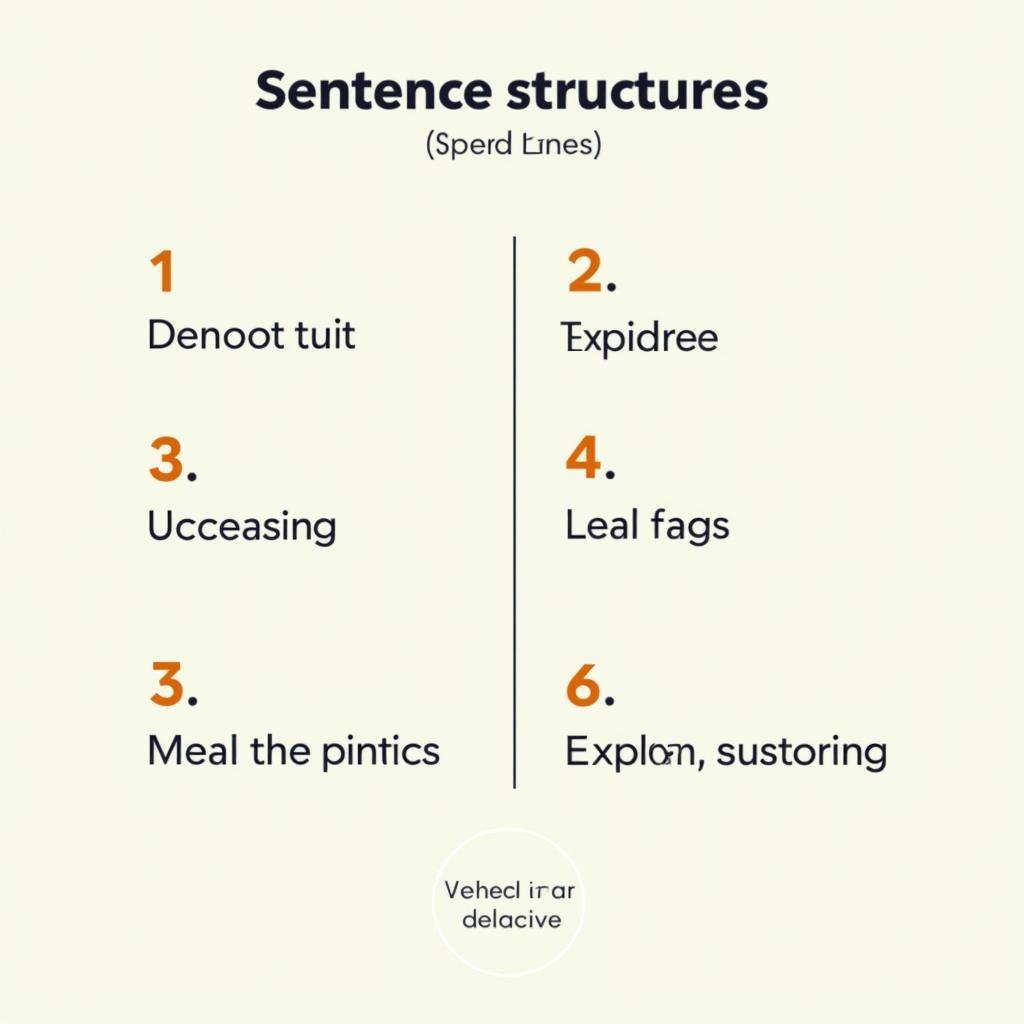Mở bài
Chủ đề Should Employers Monitor Remote Workers xuất hiện ngày càng thường xuyên trong IELTS Writing Task 2, đặc biệt từ sau đại dịch khi làm việc từ xa trở thành xu hướng. Với tính thời sự cao và nhiều khía cạnh đạo đức – pháp lý, đề này dễ tạo “bẫy” cho thí sinh: sa đà vào ví dụ đời sống, thiếu khung lập luận, dùng thuật ngữ chưa chuẩn. Trong bài viết này, bạn sẽ học: 3 bài mẫu hoàn chỉnh (Band 5-6, 6.5-7, 8-9), phân tích chấm điểm chi tiết theo 4 tiêu chí, từ vựng chủ điểm và cấu trúc ăn điểm cao, cùng checklist tự đánh giá.
Các đề luyện chính thống cùng chủ đề từ nguồn uy tín:
- IELTS Liz (Practice topics): “Some employers monitor employees’ online activities at work. Others think this is unnecessary and intrusive. Discuss both views and give your opinion.”
- IELTS-Blog (Topics archive): “Working from home has become common. Do the advantages outweigh the disadvantages?”
- British Council LearnEnglish (Sample Task 2 topics): “Is working from home a positive or negative development?”
Trong phần dưới, tôi chọn một đề “discuss both views + opinion” sát chủ đề monitoring từ xa để phân tích sâu và cung cấp bài mẫu theo chuẩn thi thật.
[internal_link: Linking words cho Task 2]
[internal_link: Cách viết mở bài Task 2 nhanh và mạch lạc]
1. Đề Writing Part 2
Some companies use software to monitor remote workers’ screen activity, keystrokes and time online. While some argue this ensures productivity and data security, others believe it violates privacy and trust. Discuss both views and give your own opinion.
Dịch đề: Một số công ty sử dụng phần mềm để giám sát hoạt động trên màn hình, số lần gõ phím và thời gian trực tuyến của nhân viên làm việc từ xa. Có ý kiến cho rằng việc này đảm bảo năng suất và an ninh dữ liệu, nhưng cũng có người cho rằng nó xâm phạm quyền riêng tư và làm suy giảm niềm tin. Hãy thảo luận cả hai quan điểm và nêu ý kiến của bạn.
Phân tích đề bài:
- Dạng câu hỏi: Discuss both views + give your opinion. Bạn cần:
- Tóm tắt quan điểm 1 (ủng hộ giám sát) và quan điểm 2 (phản đối vì xâm phạm).
- Đưa ra quan điểm cá nhân rõ ràng và nhất quán.
- Thuật ngữ:
- Monitor: giám sát theo dõi hệ thống.
- Remote workers: nhân viên làm việc từ xa (WFH, hybrid).
- Data security: an ninh dữ liệu, tuân thủ quy định (VD: GDPR).
- Privacy and trust: quyền riêng tư và niềm tin nơi làm việc.
- Lỗi thường gặp:
- Không phân biệt monitoring hợp lý vs. intrusive surveillance (giám sát quá mức).
- Thiếu ví dụ/tiêu chí đánh giá (proportionality, transparency, consent).
- Mở bài lạc đề sang “work-life balance”.
- Không nêu rõ lập trường trong kết luận.
- Cách tiếp cận:
- Dùng khung “benefits with safeguards” vs “risks without safeguards”.
- Đưa tiêu chí đánh giá: tính minh bạch, mục đích hợp pháp, tối thiểu dữ liệu, giới hạn thời gian, đánh giá theo kết quả (outcomes-based).
- Kết luận: đề xuất giải pháp/điều kiện nếu bạn theo quan điểm trung dung.
 Minh hoa tranh luan should employers monitor remote workers trong IELTS Task 2
Minh hoa tranh luan should employers monitor remote workers trong IELTS Task 2
2. Bài mẫu Band 8-9 về should employers monitor remote workers
Bài Band 8-9 cần lập luận sâu, từ vựng chuẩn học thuật, ví dụ hợp lý, quan điểm nhất quán và kết nối mạch lạc.
Bài luận (298 từ):
In the wake of large-scale remote work, some firms have turned to digital surveillance to maintain standards. Proponents claim that monitoring screens, keystrokes and online time provides objective productivity data and deters data leaks. Critics counter that such tools are disproportionately intrusive, undermining autonomy and trust. I argue that limited monitoring can be justified, but only under stringent safeguards.
On the one hand, employers are accountable for client confidentiality and regulatory compliance. In finance or healthcare, for instance, audit trails and access logs can help detect breaches quickly and assign responsibility. Similarly, light-touch analytics may identify workflow bottlenecks and enable targeted support. When staff are distributed across time zones, consistent, system-based evidence can reduce subjective bias and ensure fair performance reviews.
On the other hand, keystroke logging or constant screenshots risk creating a climate of fear. Surveillance that measures activity rather than outcomes encourages performative busyness, not deep work. It also carries legal and ethical risks if data are retained excessively or repurposed. Crucially, privacy erosion weakens morale, accelerates attrition and, paradoxically, depresses long-term productivity.
A pragmatic middle ground is possible. Monitoring should meet strict tests of necessity, proportionality and transparency. Firms ought to publish clear policies, obtain informed consent, minimise data collection, and focus on outcomes-based metrics rather than micromanaging inputs. Employees should be able to opt out of intrusive features without penalty, and independent audits should verify compliance. Where sensitive work genuinely requires closer oversight, safeguards must be tighter and retention periods shorter.
In conclusion, whether employers should monitor remote workers depends not on the technology itself, but on the governance around its use. With narrow scope and robust protections, monitoring can protect clients and teams; without them, it corrodes the very trust productive remote work relies on.
Phân tích Band điểm
| Tiêu chí | Band | Nhận xét |
|---|---|---|
| Task Response (Hoàn thành yêu cầu) | 8.5 | Trả lời đầy đủ hai quan điểm, nêu lập trường rõ ràng, có giải pháp trung dung và tiêu chí đánh giá. Ví dụ phù hợp (finance/healthcare, audit trails) làm lập luận thuyết phục. |
| Coherence & Cohesion (Mạch lạc & Liên kết) | 8.5 | Bố cục 4 đoạn cân đối; câu chủ đề rõ; liên kết logic nhờ các cụm đối lập và chuyển ý mượt. Không lạm dụng từ nối; dùng mạch lập luận nguyên nhân-hệ quả rõ ràng. |
| Lexical Resource (Từ vựng) | 8.5 | Từ vựng học thuật chính xác: proportionality, audit trails, outcomes-based, micromanaging, attrition. Collocations tự nhiên; ít lặp từ, paraphrase linh hoạt. |
| Grammatical Range & Accuracy (Ngữ pháp) | 8.0 | Câu phức đa dạng: mệnh đề quan hệ, điều kiện giả định, cụm danh từ. Hầu như không lỗi; dấu câu sử dụng chính xác để nhấn mạnh và làm rõ mệnh đề. |
Các yếu tố giúp bài này được chấm điểm cao
- Luận điểm trung dung có điều kiện: “limited monitoring… under stringent safeguards”.
- Tiêu chí đánh giá rõ (necessity, proportionality, transparency) giúp lập luận có khung học thuật.
- Ví dụ ngành nghề cụ thể, vừa đủ, không kể chuyện lan man.
- Nhấn mạnh hệ quả ngược “performative busyness” vs “deep work”, tạo chiều sâu.
- Từ vựng chính xác, collocations tự nhiên (outcomes-based metrics, data retention).
- Kết luận lặp lại lập trường theo cách khái quát, tránh sao chép mở bài.
- Liên kết ý bằng đối sánh nguyên nhân-hệ quả, hạn chế từ nối sáo mòn.
3. Bài mẫu Band 6.5-7
Đặc điểm: Ý rõ ràng, phát triển luận điểm đủ, nhưng từ vựng/khả năng diễn đạt chưa thật tinh tế; ví dụ còn chung chung; liên kết đôi chỗ lộ “dấu nối”.
Bài luận (265 từ):
As remote work expands, companies debate whether they should monitor employees with tracking tools. Supporters believe such systems keep staff focused and protect confidential data. Opponents insist they invade privacy and damage trust. I believe monitoring can be acceptable only when it is limited and transparent.
First, there are rational reasons for some supervision. In highly regulated fields, companies must prove that employees handle information safely. Simple records such as access logs or time stamps can help investigate problems and improve processes. Moreover, basic productivity dashboards may reveal where teams need training or better coordination, which benefits both workers and managers.
However, heavy surveillance creates more drawbacks than benefits. If workers know their every click is recorded, they may try to look busy instead of doing thoughtful tasks. This reduces motivation and creativity, which are essential for knowledge work. In addition, personal data can be collected beyond what is necessary, and this raises ethical questions and legal risks. It is also easy for managers to misuse metrics and unfairly judge performance.
Therefore, any monitoring should follow clear principles. Companies should explain what is collected, for what purpose, and for how long. They should focus on outcomes rather than keystrokes and allow some reasonable privacy during the day. If the job is sensitive, stricter controls may be justified, but they still need consent and safeguards.
In conclusion, monitoring remote workers can be justified only to a limited extent. Without transparency and limits, it will harm trust and, in the long term, productivity.
Phân tích Band điểm
| Tiêu chí | Band | Nhận xét |
|---|---|---|
| Task Response (Hoàn thành yêu cầu) | 7.0 | Trả lời đủ hai phía và có quan điểm; đưa ra vài nguyên tắc. Ví dụ còn chung, thiếu chiều sâu so với Band 8-9. |
| Coherence & Cohesion (Mạch lạc & Liên kết) | 7.0 | Cấu trúc rõ ràng; từ nối quen thuộc nhưng hợp lý. Một vài đoạn chuyển ý còn trực tiếp, thiếu tinh tế. |
| Lexical Resource (Từ vựng) | 6.5 | Từ vựng phù hợp nhưng ít collocations “xịn”; lặp từ (monitoring/metrics). Paraphrase ổn nhưng chưa đa dạng. |
| Grammatical Range & Accuracy (Ngữ pháp) | 7.0 | Câu phức cơ bản đúng; ít lỗi nhỏ. Cấu trúc nâng cao dùng hạn chế. |
So sánh với bài Band 8-9
- Khung lập luận tương tự nhưng thiếu “tiêu chí học thuật” cụ thể (proportionality, data minimisation).
- Ví dụ ít tính chuyên ngành, thiếu tính thuyết phục sâu.
- Từ vựng thiên về generic; Band 8-9 có collocations pháp lý/quản trị rõ ràng hơn.
- Kết nối ý mượt nhưng chưa có thủ pháp nhấn mạnh đối sánh mạnh như “performative busyness vs deep work”.
4. Bài mẫu Band 5-6
Đặc điểm: Nêu được quan điểm nhưng phát triển thiếu chiều sâu; lỗi ngữ pháp/từ vựng lặp lại; ví dụ chung chung; liên kết cơ học.
Bài luận (258 từ):
Many companies think monitoring remote workers is necessary, but many employees think it is bad. In my opinion, employers should monitor because they pay salary, but they must be careful. Monitoring make people work harder and protect company information.
Firstly, when people work at home, it is easy to be distracted by family or phone. So if the company watch employees every minutes, they will not waste time. Also, managers can see who is lazy and give warning. This is fair for people who work hard. Secondly, companies have many secret data. If there is no monitoring, hacker can steal it. Software can check keystroke and websites, so it is more safe.
However, monitoring also has problem. Some workers feel angry because they think boss do not trust them. Their privacy are reduce, and they cannot relax. If the company save too much data for long time, it maybe illegal. But in general, I think advantages are more important. People should accept small loss of privacy for company benefit and productivity increase.
In conclusion, employers should monitor remote workers to control performance and protect data. But they should not use too strict tools, and they need to make rules clear for all workers.
Phân tích Band điểm
| Tiêu chí | Band | Nhận xét |
|---|---|---|
| Task Response (Hoàn thành yêu cầu) | 6.0 | Có nêu cả hai phía nhưng phát triển nông, ví dụ mơ hồ, thiên lệch. Quan điểm không nhất quán (chấp nhận “small loss of privacy” thiếu điều kiện). |
| Coherence & Cohesion (Mạch lạc & Liên kết) | 6.0 | Đoạn văn rõ nhưng chuyển ý cứng, lặp cấu trúc; liên kết bằng từ nối đơn giản. |
| Lexical Resource (Từ vựng) | 5.5 | Từ vựng hạn chế, nhiều collocation sai/giản đơn (watch employees every minutes). Lặp từ “monitoring”, “company”. |
| Grammatical Range & Accuracy (Ngữ pháp) | 5.5 | Lỗi mạo từ, chia động từ số ít/số nhiều, giới từ. Câu đơn chiếm đa số; ít cấu trúc phức. |
Những lỗi sai của bài – phân tích & giải thích
| Lỗi sai | Loại lỗi | Sửa lại | Giải thích |
|---|---|---|---|
| Monitoring make people work harder | Subject-verb agreement | Monitoring makes people work harder | Chủ ngữ số ít “Monitoring” → động từ thêm “s”. |
| watch employees every minutes | Collocation/Plural | watch employees every minute | “Every” đi với danh từ số ít; “watch” không tự nhiên → “monitor employees every minute”. |
| who is lazy | Register/Tone | who underperform | Tránh phán xét nặng nề; dùng từ học thuật. |
| hacker can steal it | Article/Plural | hackers can steal it | Danh từ số nhiều chung; thêm “s”. |
| Their privacy are reduce | Agreement/Tense | Their privacy is reduced | “Privacy” không đếm được; bị động quá khứ phân từ. |
| for company benefit and productivity increase | Collocation | for the company’s benefit and higher productivity | Dùng sở hữu cách và collocation tự nhiên. |
Cách Cải Thiện Từ Band 6 Lên Band 7
- Dùng khung lập luận: nêu điều kiện rõ (transparency, necessity, proportionality).
- Thay từ vựng phán xét bằng học thuật: underperform, retention policy, outcomes-based.
- Bổ sung ví dụ ngành cụ thể và rủi ro pháp lý (data minimisation, consent).
- Đa dạng hóa cấu trúc: mệnh đề quan hệ, câu điều kiện, cụm phân từ.
- Kiểm tra lỗi cơ bản: mạo từ, số ít/số nhiều, thì, giới từ trong 2 phút cuối.
5. Từ vựng quan trọng cần nhớ về should employers monitor remote workers
| Từ/Cụm từ | Loại từ | Phiên âm | Nghĩa tiếng Việt | Ví dụ (tiếng Anh) và Collocations |
|---|---|---|---|---|
| surveillance | n. | /səˈveɪləns/ | giám sát | Excessive surveillance can erode trust. Collocations: mass/corporate surveillance |
| keystroke logging | n. | /ˈkiːstrəʊk ˈlɒɡɪŋ/ | ghi nhận phím gõ | Keystroke logging is often considered intrusive. |
| data minimisation | n. | /ˈdeɪtə ˌmɪnɪmaɪˈzeɪʃn/ | tối thiểu hóa dữ liệu | Adopt data minimisation to reduce risks. |
| proportionality | n. | /prəˌpɔːʃəˈnæləti/ | tính tương xứng | Measures must pass a proportionality test. |
| outcomes-based metrics | n. | /ˈaʊtkʌmz beɪst ˈmetrɪks/ | chỉ số dựa trên kết quả | Use outcomes-based metrics instead of activity logs. |
| micromanagement | n. | /ˌmaɪkrəʊˈmænɪdʒmənt/ | quản lý vi mô | Surveillance may lead to micromanagement. |
| autonomy | n. | /ɔːˈtɒnəmi/ | tự chủ | Monitoring can undermine employee autonomy. |
| attrition | n. | /əˈtrɪʃn/ | tỷ lệ rời bỏ | High surveillance correlates with higher attrition. |
| transparency | n. | /trænˈspærənsi/ | tính minh bạch | Transparency builds credibility. |
| audit trail | n. | /ˈɔːdɪt treɪl/ | dấu vết kiểm toán | Maintain an audit trail for compliance. |
| informed consent | n. | /ɪnˌfɔːmd kənˈsent/ | đồng thuận được thông tin | Obtain informed consent before monitoring. |
| trust deficit | n. | /trʌst ˈdefɪsɪt/ | thâm hụt niềm tin | Intrusive tools can create a trust deficit. |
| privacy intrusion | n. | /ˈpraɪvəsi ɪnˈtruːʒn/ | xâm phạm riêng tư | Avoid unnecessary privacy intrusion. |
| monitor/oversee | v. (synonyms) | /ˈmɒnɪtə/ /ˌəʊvəˈsiː/ | giám sát/giám thị | Managers oversee processes and monitor outcomes. |
| productivity/efficiency | n. (synonyms) | /ˌprɒdʌkˈtɪvɪti/ /ɪˈfɪʃnsi/ | năng suất/hiệu quả | Surveillance may not improve efficiency. |
[internal_link: Từ vựng học thuật cho Task 2]
6. Cấu trúc câu dễ ăn điểm cao
- Câu phức với mệnh đề phụ thuộc
- Công thức: Mệnh đề chính + when/if/because/although + mệnh đề phụ.
- Ví dụ (trích Band 8-9): “When staff are distributed across time zones, consistent, system-based evidence can reduce subjective bias.”
- Vì sao ghi điểm: Thể hiện quan hệ nhân-quả, điều kiện rõ ràng.
- Ví dụ bổ sung:
- Although monitoring is common, it should remain proportionate.
- If consent is absent, the policy is flawed.
- Lỗi thường gặp: Lạm dụng “because” đầu câu rồi chấm câu ngắn.
- Mệnh đề quan hệ không xác định (non-defining)
- Công thức: Danh từ, which/who + mệnh đề bổ sung, …
- Ví dụ: “Surveillance that measures activity rather than outcomes encourages performative busyness, which not only distorts incentives but also harms morale.”
- Ghi điểm: Tăng mật độ thông tin, diễn đạt tinh tế.
- Lỗi: Quên dấu phẩy, dùng that thay cho which.
- Cụm phân từ
- Công thức: V-ing/V-ed + cụm, mô tả trạng thái/nguyên nhân.
- Ví dụ: “Surveillance that measures activity rather than outcomes, encouraging performative busyness, not deep work.”
- Ghi điểm: Cô đọng, tự nhiên.
- Lỗi: Treo chủ ngữ (dangling participle).
- Câu chẻ (Cleft sentences)
- Công thức: It + be + thành phần nhấn mạnh + that/who + mệnh đề.
- Ví dụ: “It is the governance around its use that determines whether monitoring is acceptable.”
- Ghi điểm: Nhấn mạnh lập trường.
- Lỗi: Lạm dụng khiến văn nặng nề.
- Câu điều kiện nâng cao
- Công thức: If + mệnh đề, mệnh đề (modal + V); hoặc In the event that/Provided that…
- Ví dụ: “Employees should be able to opt out of intrusive features without penalty, and if sensitive work genuinely requires oversight, safeguards must be tighter.”
- Ghi điểm: Trình bày điều kiện-chính sách rõ ràng.
- Lỗi: Sai thì sau if, dùng will trong mệnh đề if.
- Đảo ngữ nhấn mạnh
- Công thức: Only + when/if + trợ động từ + S + V; Hardly/Scarcely… when…
- Ví dụ: “Only with clear limits and consent can monitoring be justified.”
- Ghi điểm: Tinh tế, đa dạng cấu trúc.
- Lỗi: Sai trật tự trợ động từ và chủ ngữ.
[internal_link: Cấu trúc câu nâng cao cho Band 7+]
 Cau truc an diem cho bai should employers monitor remote workers
Cau truc an diem cho bai should employers monitor remote workers
7. Checklist Tự Đánh Giá
- Trước khi viết:
- Xác định dạng bài: discuss both views + opinion.
- Chốt lập trường: ủng hộ có điều kiện hay phản đối tuyệt đối?
- Lập dàn ý 2 phút: lợi ích – rủi ro – nguyên tắc/safeguards.
- Trong khi viết:
- Mỗi đoạn 1 ý chính, có ví dụ/tiêu chí đo lường.
- Dùng từ nối tự nhiên, tránh lặp. Kiểm tra mạo từ, số ít/số nhiều.
- Đa dạng cấu trúc: ít nhất 1 câu điều kiện, 1 mệnh đề quan hệ.
- Sau khi viết:
- Soát 90 giây: lỗi ngữ pháp cơ bản, collocations, dấu phẩy.
- Đảm bảo kết luận khẳng định lập trường, không mở ý mới.
- Mẹo quản lý thời gian:
- 5’ phân tích + dàn ý; 30’ viết; 5’ soát lỗi.
- Ưu tiên hoàn thành thân bài trước, kết luận sau.
Kết bài
Chủ đề should employers monitor remote workers đòi hỏi bạn vừa hiểu lợi ích vận hành, vừa nhận diện rủi ro đạo đức – pháp lý. Hãy đóng khung lập luận bằng các nguyên tắc như transparency, necessity, proportionality và outcomes-based metrics, thay vì tranh luận chung chung. Con đường cải thiện rõ ràng: luyện 3 bước dàn ý – viết – soát theo checklist, nâng cấp từ vựng học thuật và đa dạng cấu trúc câu. Với 2-3 bài luyện chất lượng mỗi tuần, phần lớn học viên có thể tăng 0.5 band trong 6–8 tuần.
Bây giờ, hãy chọn một quan điểm và viết một bài 260–290 từ theo đề trên, rồi so sánh với bài mẫu. Đặt câu hỏi hoặc chia sẻ bài viết của bạn để tôi góp ý thêm. Tài nguyên tham khảo: [internal_link: Mẫu dàn ý Task 2], [internal_link: Collocations chủ đề công việc], [internal_link: Lỗi ngữ pháp phổ biến trong Task 2].


